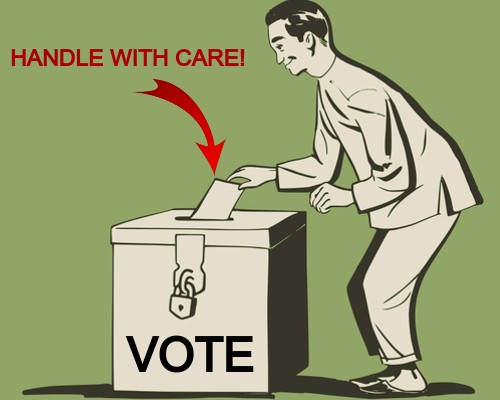
The last few weeks (sometimes the last few months) of a presidential election cycle always leave me feeling somewhat burnt out. As a political columnist, I prefer to focus on events, policy, and principles rather than on the horse race. I’m really not very invested in which “major party” politician lies convincingly enough, to enough voters, to get hold of the One Ring and attempt (with little success, thankfully) to rule us all for the next four years.
Unfortunately, a political columnist lives and dies by the news cycle, that news cycle dominates the last few weeks, and at this point even stories about other subjects tend to turn back to their possible election effects. That leaves me without very much of interest to write about unless I want to talk nuts and bolts politics.
Fortunately, one of the hats I wear other than political columnist is election outcome predictor, and I’m fairly good at it. I’ve correctly predicted the winner, and the outcomes in 48 of the 50 states, three presidential elections in a row now.
So let’s do this. My prediction (issued on September 21) is:
Kamala Harris: 319 electoral votes, Donald Trump 219.
At the time of that prediction, my main focus was on “who’s in the driver’s seat?” Harris was scoring field goals and plodding toward victory while Trump kept making long “Hail Mary” passes hoping for touchdowns and failing to complete. That remains the case.
At this point, it would take a heck of an “October surprise” to change the trajectory. We’re down to two closely related factors.
The first factor is turnout. Most voters have decided who they like best. It’s all about getting those voters to actually fill out ballots. Harris enjoys the support of a long-existing, very successful Get Out the Vote machine. Trump handed his turnout operation to an outside group with little experience and it showed, although Elon Musk is trying to help out with tens of millions of dollars for last-minute direct mail and door-knocking.
The second factor, which tends to reduce Musk’s ability to impact things, is early voting.
As of October 18, according to the University of Florida’s Election Lab, more than 12 million Americans had already voted and another 56 million mail ballots had been requested (many of which are likely already on their way back via the Postal Service).
To the extent that those votes can be tracked by party registration, Democrats have cast more than half again as many early votes as Republicans. Early voting is heaviest in the “swing states” where relatively few votes will likely determine the outcome.
A vote in the hand may not be worth two in the bush, but it’s worth more than one. Election Day votes may never happen due to flat tires, emergency trips out of town, etc. Early votes aren’t in the bush, they’re in the bank.
Harris has momentum. Trump’s stuck with inertia.
So there you have it — my writer’s-burnout-induced human sacrifice to this year’s election news cycle gods. You’re welcome.
Thomas L. Knapp (Twitter:@thomaslknapp) is director and senior news analyst at the William Lloyd Garrison Center for Libertarian Advocacy Journalism (thegarrisoncenter.org). He lives and works in north central Florida.
PUBLICATION/CITATION HISTORY

